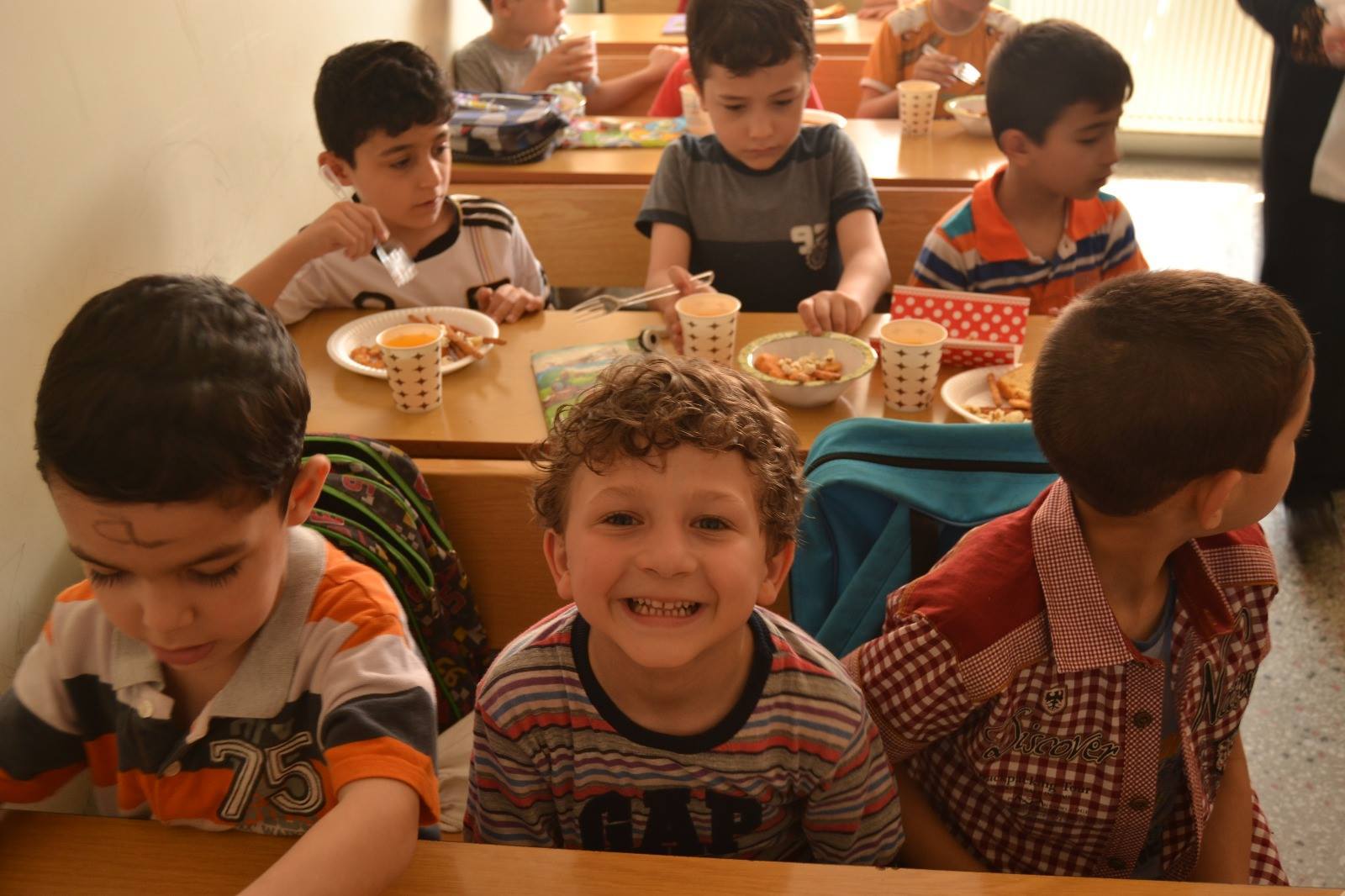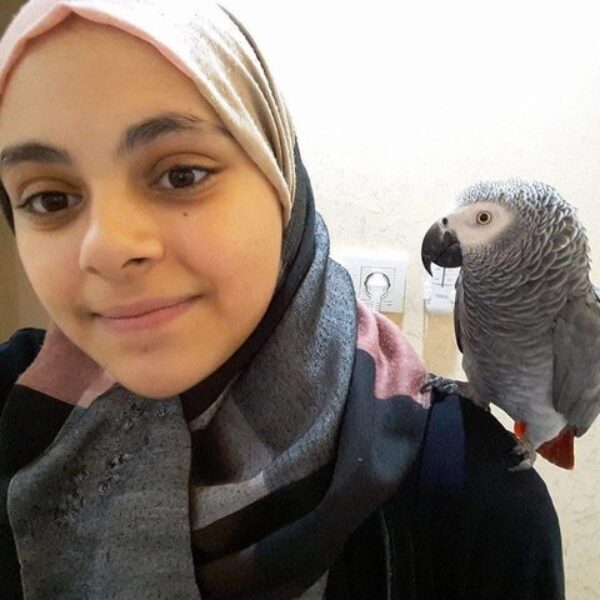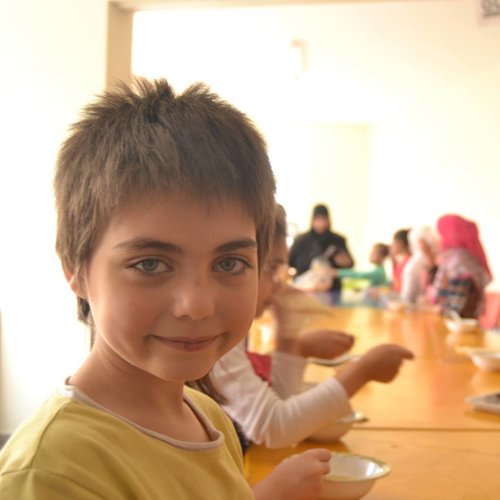
A year ago, my two sisters and I began helping Syrian refugee children, teaching them English for an organization called Al-Hayat (“Life”). While I must admit it was difficult (I was only 15 when I started and had never taught before), it was very rewarding nonetheless.
The first time I walked into the school of 80+ refugee children, ages 7 to 15, I expected to find them traumatized by their past. Instead, they were rambunctious, loud and talkative. It wasn’t long until they started telling us about who they were and how their lives were at home, although they only talked about the homes they had been forced to leave in Syria if we probed. (Most were quite young when the war started and had never even been to school before they arrived in Turkey).
Then, we started receiving gifts, most of which were drawings. We realized how much they adored drawing, so we began to buy them books and coloring pencils so they could express themselves through art. Once the school picked up on it, the administrators started offering an art class. Most of what the students drew were of pretty houses, princesses and animals—what all children like to dream about. These students weren’t living in the past; rather, they were dreaming about the life they want to live. However, while this was true for most of them, it wasn’t for all.
Lu’ay was only 6 years old, yet one day a teacher had to ask him to leave the room because he was being so aggressive with the other children. I was asked to talk to him about why he was misbehaving. When I approached him, he burrowed into a corner and kept running his fingers through his hair, anxiously. I didn’t get many words out of him, but the ones I did were worrying to say the least. He would only say things like, “They shot him with guns.” When I asked who, I barely heard him say, “My dad.” When I asked again, he said, “They shot my dad with guns.” I didn’t know how to react. The teacher next to me, who was older and more experienced, embraced him and took him to a more private place to calm down.
Since then, a lot has changed at Al-Hayat. There is now a specific program for children who’ve lost one or both parents to the war. They are given extra classes where they can express themselves through special activities and receive psychological support. There are 340 orphans who have and still are benefiting from this program.
However, Lu’ay and the others are fortunate in that they can attend a supportive school. Many other families cannot afford to send them because of the cost of transportation. Instead, children like the 12-year-old twins Aisha and Amina sew handbags and clean each day to help support their three siblings and parents, all of whom live in a cramped, two-room apartment. They can’t afford transportation to Al-Hayat, but if the school had a bus, the girls and their siblings could attend the school and get free meals and health care; in addition, their parents could take courses in languages, parenting and other practical skills.
The only problem is that Al-Hayat doesn’t have a bus to transport the children. So I decided to help raise money for the school to buy one. I’ve never done anything like this, and don’t know how it will come out. I’m nervous and quite honestly fear failure, but who knows? Nothing ventured, nothing gained. And these kids are worth it.










